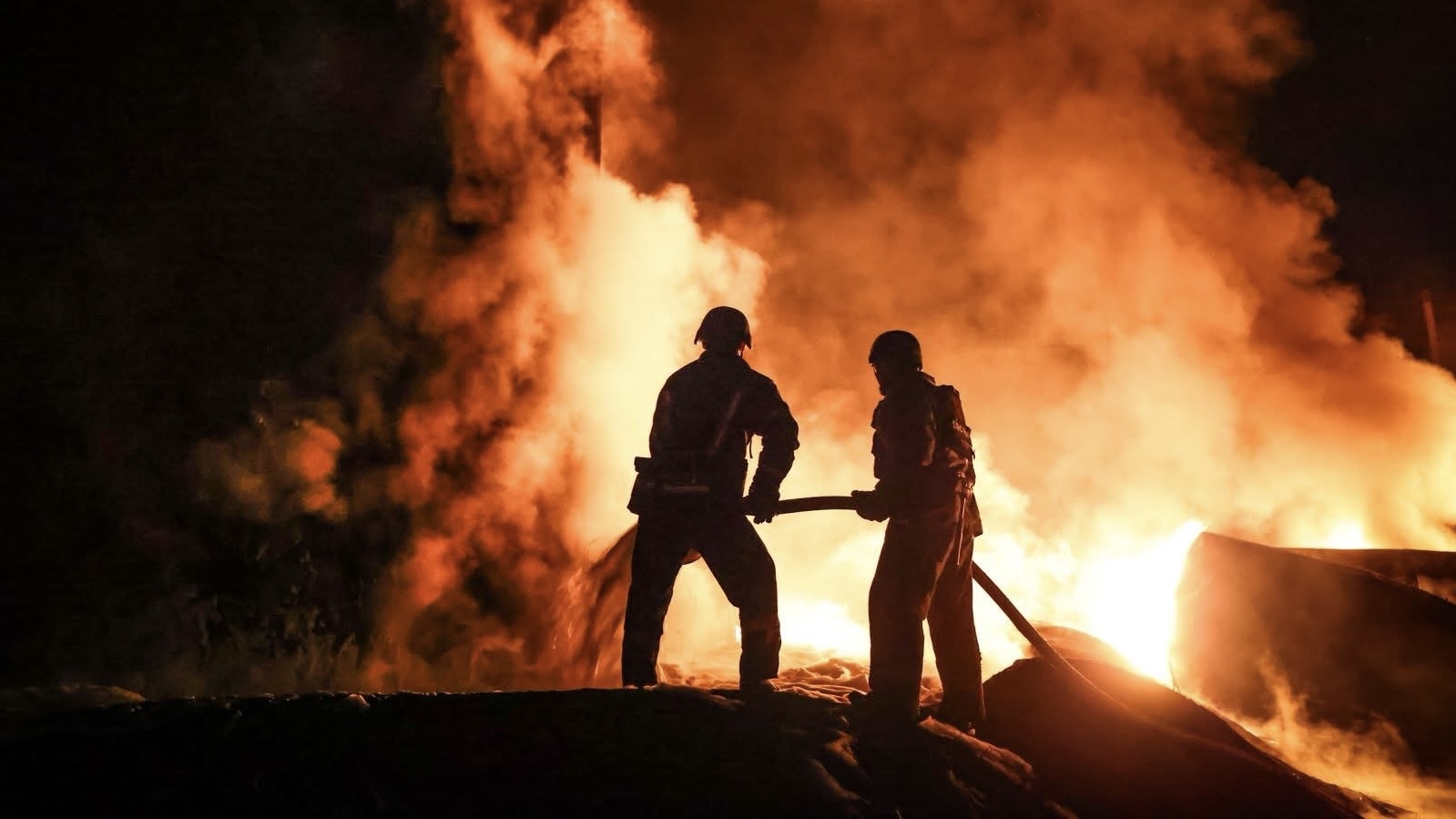Battlefield Shifts: Zelenskyy Presses Allies as Russia Counters With Law and Losses in Escalating Information War
Ukrainian President Volodymyr Zelenskyy has sharply accused Russia of escalating attacks on civilian infrastructure, claiming deliberate strikes on energy systems and railways aimed at destabilizing Ukrainian society.
“Their goal is to destabilize logistics and create social pressure,” Zelenskyy said in a series of statements, adding that Ukrainian counter-operations have disrupted Russian supply lines without targeting civilians.
 |
| Ukraine and Russia Clash Over Legitimacy. Via: Zelenskyy |
He claimed that the Sumy operation “has already failed,” citing heavy Russian manpower losses and a lack of capacity for further large-scale attacks. He stated that Ukrainian forces had inflicted “even greater losses” on Russian units redeployed from Sumy to other sectors.
"The Russian army never strikes civilian targets." - Lavrov stated. pic.twitter.com/pCiQTvHGeM
— WarTranslated (@wartranslated) September 17, 2025
The Ukrainian president also addressed security guarantees, noting that Kyiv and its partners now share a common understanding of Ukraine’s military needs on land, at sea, and in the air. Zelenskyy stressed the importance of sustained financial backing, stating the war is costing $120 billion per year, with Ukraine funding half and seeking the remainder--approximately $60 billion--from international allies.
He referred to NATO-backed military support through the PURL initiative, confirming $2 billion in commitments and anticipating a total of $3.5 to $3.6 billion. Two packages worth $500 million each, expected in October, include Patriot and HIMARS missile systems.
Meanwhile, Zelenskyy reiterated the call for “Article 5–like” guarantees--referencing NATO’s collective defense clause--particularly in discussions with the United States. He also highlighted ongoing talks around using frozen Russian assets to support reconstruction, should Moscow resume aggression.
Contrasting this narrative, Russian Foreign Minister Sergey Lavrov rejected Kyiv’s claims to legitimacy over contested regions, citing the 1970 UN Declaration on Principles of International Law. Lavrov argued that territorial integrity applies only to governments representing all their citizens without discrimination.
He alleged that Ukraine has suppressed Russian-speaking communities, banned the Ukrainian Orthodox Church, and failed to uphold basic civil rights, including religious and linguistic freedoms.
Lavrov said Zelenskyy himself previously encouraged Russian-speaking Ukrainians to “move to Russia,” and that policies under his leadership violate the UN Charter.
He further claimed that Russian is the only language banned by law in any country, accusing Ukraine of criminalizing its use in education, media, and daily life. Russia also criticized a law passed in May enabling courts to ban religious organizations affiliated with the UOC.
Russia continues to strike civilian targets, hitting energy infrastructure and railway facilities. Their goal is to destabilize logistics and create social pressure. In turn, we carried out some successful operations in response, which created a big social uproar in Russia. But…
— Volodymyr Zelenskyy / Володимир Зеленський (@ZelenskyyUa) September 17, 2025
On the ground, Russia’s Defense Ministry reported that Ukrainian forces lost approximately 1,555 personnel in a single day of fighting across all major fronts. The report cited losses in manpower across operational groups North, South, East, West, Center, and Dnepr.
Additionally, Russia claimed destruction of 14 armored vehicles, 12 artillery units, and 357 drones. Russian forces also struck railway infrastructure, drone depots, and temporary military positions in 149 locations.
On the diplomatic front, European Parliament President Roberta Metsola visited Kyiv for the fourth time since the invasion. She met with Zelenskyy to discuss EU accession talks, additional sanctions against Russia, and EU support for Ukraine’s education and welfare programs.
The European Parliament also opened a permanent office in Kyiv to strengthen legislative cooperation.
Ukraine has already received over $2 billion from partners specifically for the PURL initiative. In October, we expect additional funds, bringing the total to around $3.5-3.6 billion.
— Volodymyr Zelenskyy / Володимир Зеленський (@ZelenskyyUa) September 17, 2025
The first two packages, worth $500 million each, will certainly include missiles for Patriot and…
In a separate development, Kremlin spokesman Dmitry Peskov said Russia supports reforms to the UN Security Council. He echoed UN Secretary-General António Guterres’ view that the current structure reflects outdated geopolitical realities.
While Guterres supported proposals to limit veto powers, Russia emphasized the need for broader representation from Asia, Africa, and Latin America.
Both Kyiv and Moscow are now waging parallel campaigns--military, economic, and diplomatic. Ukraine is focused on survival and systemic support, while Russia is reinforcing its political position through legal arguments and battlefield statistics. The war grinds on.
